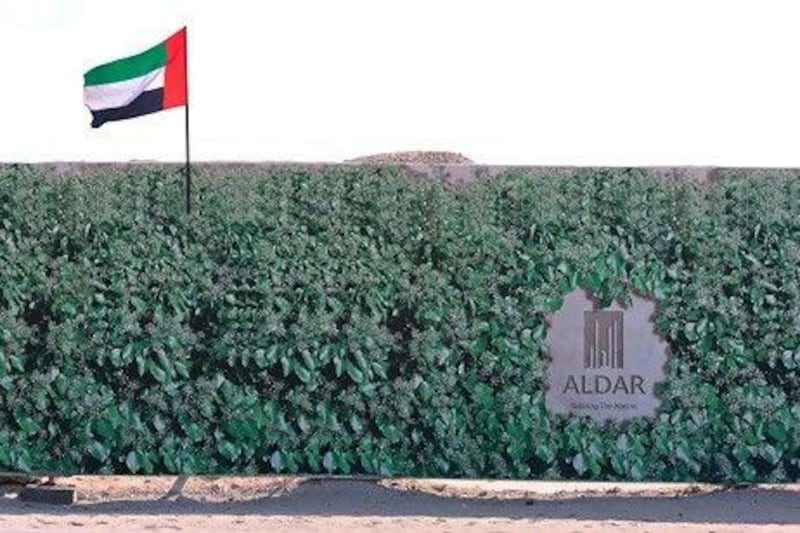The challenge investors face in trying to pick stocks on the Dubai Financial Market and the Abu Dhabi Securities Exchange resembles searching the capital's Corniche for a reasonably priced apartment. Some offerings look good but are expensive, and a fair few are overvalued empty shells.
Property stocks have been the talk of the city after the Government's blessing to a potential merger between Aldar Properties and Sorouh Real Estate. Such interest is likely to continue this week, as investors want to know what is guiding the market in property shares.
Martin Kohlhase, the senior analyst at Moody's Corporate Finance Group, may have hit upon the answer. He said in a note that Moody's initial assessment of the proposed transaction between Aldar and Sorouh "identified more positives than negatives". With synergies and cost savings, and the impact on Aldar of Sorouh's lower balance sheet leverage - debt-equity of 40.4 per cent at the end of last year - Mr Kohlhase's positives include "the potential to better manage and control future property developments given the combined group's strengthened market position".
Such "control" is unlikely to help buyers and renters of Abu Dhabi property, who have seen prices come down from dizzying heights but who may find a union of the emirate's two biggest property companies leads to stabilised property prices.
The flip side is that Abu Dhabi property stocks look set to re-emerge as attractive investments, at least for short-term gains, as investors - keen to believe reports the property market will bottom out in the middle of this year before rebounding - scramble and push up prices. Undoubtedly the topic will feature at the Dubai property company Emaar's board meeting tomorrow.
Tuesday marks the start of the Iranian New Year, though with international sanctions beginning to have a serious effect on Iran's economy, its citizens may find little to celebrate. Oil prices are expected to remain volatile on supply fears.
Analysts at Capital Economics said an initial US$3-per-barrel fall in oil prices on a report that the United States and Britain were discussing the release of emergency stocks was almost certainly premature. But it is a forewarning of bigger declines to come if, or when, an official release is actually confirmed. The price of Brent crude could fall by as much as $10 from $126 a barrel on an announcement, according to Capital Economics, which expects oil to end the year below $100.
While bosses at Goldman Sachs deal with the fallout from accusations the bank's culture is "toxic", its research department is keeping a keen watch on base metal prices. The bank expects copper, zinc and aluminium prices to rise.
However, UAE aluminium processing companies could be hurt by an announcement from Aluminum Corporation of China, which reported a bigger-than-expected fourth-quarter net loss of $115.3 million on Friday, showing the impact of lower metal prices and higher costs. Chalco, as the company is known, warned of losses in the first quarter of this year.
Goldman Sachs is not the only company suffering reputational damage. Dar Al Arkan,a Saudi property company, has had its 10.75 per cent sukuk, due to mature in 2015, downgraded from "buy" to "hold" by analysts at Exotix, to reflect the raised risk premium due to what Exotix says is "heightened uncertainty" over Dar Al Arkan's internal controls and funding transactions.
The concern stems from website alleging weak corporate governance, undisclosed related parties, and questionable historical funding practices at the company. Dar Al Arkan has denied the allegations.
This week's most closely watched release will be China's flash estimate of the manufacturing purchasing managers index for March from HSBC and Markit on Thursday.
The headline index has picked up for three months in a row, indicating conditions in the sector have stopped deteriorating. The People's Bank of China has made a more concerted effort to loosen monetary conditions since the middle of last month.
Libya will also be the focus of attention for the first week of trading on its stock exchange since it reopened on Thursday, 13 months after closing at the outbreak of civil war.
twitter: Follow our breaking business news and retweet to your followers. Follow us





